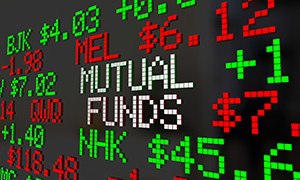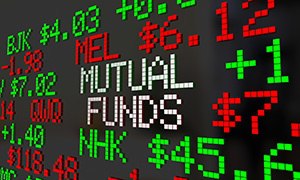7 Factors to Consider Before Adding Actively Managed Funds to Your Portfolio
August 18th, 2017 | 2 min. read

by Kurt Mears, Financial Adviser and Smartvestor Pro
 There are thousands of mutual funds available, and they’re not all created equal.
There are thousands of mutual funds available, and they’re not all created equal.
For example, actively managed funds are designed to outperform their respective benchmarks, either by seeking to take advantage of market opportunities or avoiding potential market risks. Passively manage funds, on the other hand, generally track their benchmarks, no matter how small the gain or how steep the loss.
Further, within each category of mutual fund there are many to choose from. So, if you want to add actively manage funds to your portfolio, how do you know which ones are right for you?
Like people, they all have their own different characteristics and goals, and the only way to separate the good from the bad is to get to know them. Fortunately, most information is publicly available in each fund’s prospectus or through online research sites, such as Morningstar.
Here are the 7 important factors that investors should consider before deciding to add actively managed funds to their portfolio:
1. ObjectiveThis is a summary of the fund’s goal and the types of investments it will make to achieve that goal. Look at funds that align with your own investment goal, such as generate growth to help accumulate wealth or provide income during retirement.
2. Fund Manager ExperienceAs with any job, you’ll want an experienced manager calling the shots for your fund. Ideally, someone with at least five to 10 years of experience. Keep in mind, though, that many managers mentor their successors for several years. So, a fund with a new manager can be worth considering if the fund has consistently performed well. At Advance Capital, we’re very qualitatively driven, so we focus on the firm, the people, the philosophy and the process. That helps us identify world-class managers.
3. SectorsSectors refer to the types of businesses the fund invests in, such as financial services or healthcare. A balanced distribution among sectors means the fund is well diversified.
4. Performance (Rate of Return)You want a history of strong returns for any fund you choose to invest in. Focus on long-term returns, 10 years or longer if possible. You’re not looking for a specific rate of return, but you do want a fund that consistently outperforms most funds in its category.
5. CostCost is the leading indicator to outperformance over the long term. The higher the cost, the higher the hurdle for outperformance. A ratio higher than 1% is considered expensive.
6. Turnover RatioTurnover refers to how often investments are bought and sold within the fund. A low turnover ratio of 50% or less shows the management team has confidence in its investments and isn’t trying to excessively time the market for a bigger return.
7. PatienceActive management, like investing in general, can be volatile. There is not a straight line to outperformance. So, investors need to have patience to really reap the potential benefits of actively managed funds.
Talk with an Investing Professional
If this sounds like a lot of information to keep in mind when choosing investments, you’re right! The good news is you don’t have to do it all alone. You can work with an investing professional who will take the time to understand your financial goals and help you select the best investments to achieve them. Talk with an investing professional in your area today!
As a financial adviser, Kurt takes a comprehensive approach to help clients work toward their financial goals by providing wealth management tools including retirement planning, investment portfolio advice and tax strategies. He specializes in federal government benefits and is a Chartered Retirement Planning Counselor.
